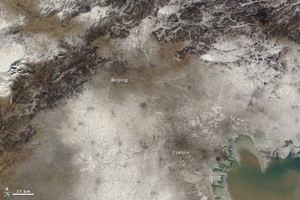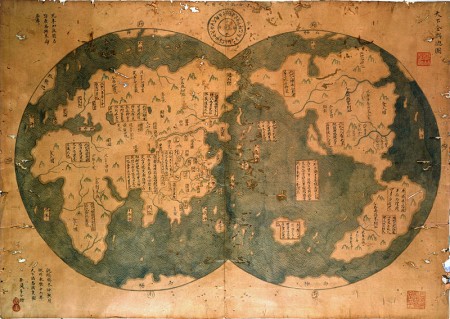We talked today about the smog in Beijing.

[A]t the time of the image, the air quality index (AQI) in Beijing was 341. An AQI above 300 is considered hazardous to all humans, not just those with heart or lung ailments. AQI below 50 is considered good. On January 12, the peak of the current air crisis, AQI was 775 the U.S Embassy Beijing Air Quality Monitor—off the U.S. Environmental Protection Agency scale—and PM2.5 was 886 micrograms per cubic meter.
–Carlowicz (2013): via NASA Earth Observatory
The pollution in Beijing seems to be a result of automobiles and construction, and not factories as you might think. One of my Chinese students (A.S.) pointed out that the Chinese government had moved a whole lot of factories out of Beijing about 10 years ago in preparation for the Olympics. Curiously, the factories were relocated to poorer areas as the cities have become wealthier; something we’ve seen at a global scale as well.
The relocation of factories out of Beijing is part of a mass migration of Chinese industry in recent years from wealthier cities, which have become environmentally conscious, to less-developed ones.
–Cha (2008): Relocation of Beijing factories only moved the problem in the Washington Post via the Seattle Times.
